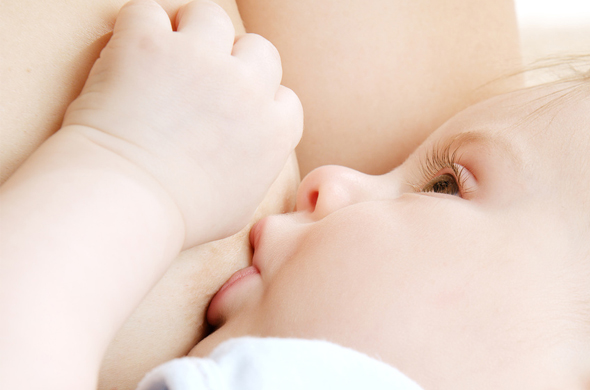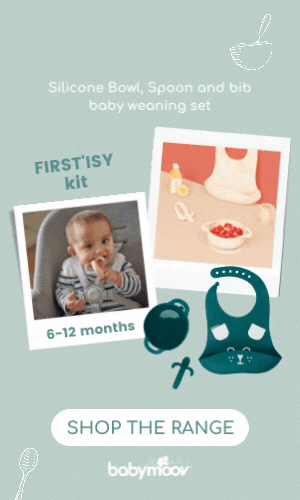Food mums should eat when breastfeeding their baby

After speaking of food not recommended, as well as food you should prefer during pregnancy, here is a special report to take a look at the diet of the new mum who is breastfeeding.
The baby has finally arrived and you may have chosen to breastfeed it. This is an important step that raises many questions for mums: what should I eat, what foods should be avoided or which ones can increase my milk supply? We tried to answer all these questions in this special report dedicated to you!
Staying fit and avoiding deficiencies:
Breastfeeding requires a lot of energy, the new mum will therefore need to pay attention to her diet, so that she does not develop deficiencies, but also provide the baby everything it needs.
Magnesium: When you are breastfeeding, the recommended magnesium intake increases, so you need to find sources to prevent any lack of it. To do this, you can eat wholemeal cereals, chocolate, along with green vegetables like beans, spinach or artichokes, which are also rich in iron.
Calcium: For strong bones, you can insist on dairy products: milk, cheese and yoghurt. However, other foods are often unknown sources of calcium: almonds, tofu or green vegetables such as broccoli, watercress or cabbage.
Vitamins: Vitamins you should favour include vitamin D, which is necessary for the growth and proper development of the baby. This vitamin is found especially in many fishes, milk, margarine or egg yolks.
Vitamin C helps strengthen your immune system, as well as that of the baby, and also fight against infections. Food you should favour: blackcurrants and parsley, which are the largest vegetable sources of vitamin C. You can also eat peppers, kiwis, strawberries, lychees or citrus fruits such as oranges or lemons.
Drink a lot: Women who are breastfeeding need a lot of water or other beverages. Indeed, breast milk is made up of almost 90% of water, so you need to increase your intake of beverages. Drink regularly, including when you are actually breastfeeding, which is when you will feel most thirsty.
Food that helps breastfeeding:
In addition to the recommended daily intake, certain food may help breastfeeding and milk supply. There is also evidence that along with these « magical » foods, the more you breastfeed, the more milk you will produce. So breastfeed your baby often.
Recommended foods include beer (without alcohol of course) or brewer’s yeast flakes can increase the amount of milk produced, as well as some plants like fennel, anise, verbena or red raspberry leaves. Lentils, almonds, cashew nuts and dates also have a positive effect.
Some foods can give a special flavour to the milk, which can then promote or hinder breastfeeding. Some spices like curry or cumin bring a taste that the baby should like and it will then suckle for longer, which will increase your milk supply. Instead, many vegetables are known to bother the baby, for example garlic, onions, leeks, celery, cauliflower or asparagus. However, do not necessarily eliminate these foods, each child is different and yours might enjoy these fragrant flavours.
Non-recommended food:
As during pregnancy (see our dossier on food not recommended during pregnancy), some foods are not recommended while breastfeeding.
Energy drinks, caffeine, tea, soft drinks or alcohol should be avoided if you are breastfeeding. Indeed, the stimulants featured in these drinks are transmitted through your milk and thus absorbed by the baby as well. If you make an exception and drink alcohol, be aware that the rate will be stronger during the following hour and that it will take several hours to eliminate it.
Some foods such as cabbage, parsley, sage, dill, mint or sorrel are known to decrease milk production. However, for the time being there is no actual scientific evidence.
Some fishes can be harmful for your child because it contains pollutants, including mercury. For instance pikes, trouts, largemouth bass or caviar and fish liver absorb larger quantities of these pollutants, which are increasingly found in nature.
While weaning your child onto solid food, a stage when your child will begin start eating foods other than milk, certain fruits and vegetables should be introduced later because of the risk of possible allergies. Namely, products known as allergenic include strawberries, exotic fruits in general or certain citrus fruits. Luckily, there should be no assumed link between your diet and the risk of allergies for breastfed children. Therefore, you can eat any kind of food with peace of mind, unless there is a family history posing a risk. INPES does not recommend some foods containing peanuts.
To conclude!
Breastfeeding is an important moment, but it should not become a source of anxiety because the baby will suffer as well. Make sure you rest, relax and most importantly, listen to yourself!
Remember: you are in the best position to know what your body and your baby need!


 EN
EN FR
FR NL
NL DE
DE ES
ES




